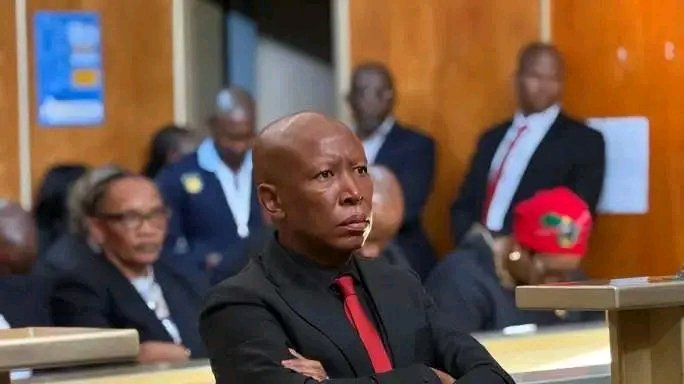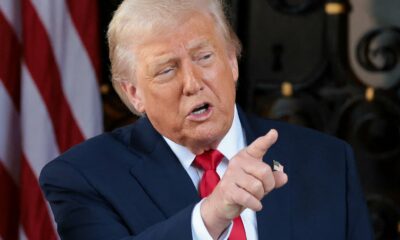News
Malema’s Firearm Conviction Sparks National Debate, Is South Africa’s Gun Law Finally Proving Its Worth?

Malema Found Guilty, Now South Africa Is Asking: Do Our Gun Laws Actually Work?
After years of legal back-and-forth, EFF leader Julius Malema has officially been convicted for illegally possessing and firing a firearm during the party’s fifth anniversary rally in 2018.
Videos from that day, which went viral across social media, showed Malema firing what appeared to be a semi-automatic rifle into the air on stage, surrounded by roaring supporters. At the time, his defenders brushed it off as theatrics. The courts, however, did not.
Now that the guilty verdict is in, reactions across South Africa have been swift and telling.
Gun Control Advocates Say: “The Law Works, If Applied Properly”
Gun Owners South Africa (GOSA) chair Paul Oxley didn’t mince words. For him, Malema’s conviction underscores something he’s been saying for years:
“Our gun laws are fine. What’s missing is enforcement and policing.”
Oxley, representing legal gun owners, argues that South Africa’s problem isn’t licensed firearms, but the millions of illegal guns circulating due to poor policing and border control.
He also made an unexpected point: while gun training is important, he believes that focusing too much on training over enforcement misses the bigger threat, guns stolen from police armouries and sold back into the streets.
Legal Experts Echo the Sentiment: “No One Is Above the Firearms Control Act”
Firearms law specialist Enslin praised the court for applying existing legislation without fear or favour.
“The Firearms Control Act has always been clear. Pointing or discharging a firearm unlawfully is a crime no matter who you are.”
His verdict? The law didn’t suddenly work, it was finally enforced.
But Was the Gun Even Malema’s? That’s Another Layer
According to Police Portfolio Committee chair Ian Cameron, Malema didn’t legally own the weapon it allegedly belonged to his bodyguard’s security company, which further complicates the issue.
“For a private person to access a semi-automatic firearm, they must undergo strict competency procedures. He clearly bypassed that process.”
Cameron warned that while the spectacle of Malema’s conviction drew headlines, the real crisis lies elsewhere:
“There are more than 3.5 million illegal guns circulating in our region. That’s the real war.”
Political Reaction: Accountability or Political Theatre?
Predictably, responses split down familiar lines.
-
AfriForum called the conviction “a victory for accountability”, claiming credit for laying the original criminal charges in 2018.
-
DA leader John Steenhuisen welcomed the ruling but blasted Malema’s defiant behaviour outside court, accusing him of stoking division instead of showing remorse.
-
On social media, reactions were mixed, EFF supporters dismissed the ruling as a political attack, while others joked that “even Malema can’t shoot his way out of paperwork.”
So What Does This Verdict Actually Mean for South Africa?
In a country where powerful figures are often seen as untouchable, Malema’s conviction carries symbolic weight. It suggests that the Firearms Control Act is not just ink on paper, it can be enforced, even against political heavyweights.
But the broader question remains:
Is this the start of consistent enforcement or just a one-off example to make headlines?
For now, the message is clear:
Fire a weapon in public, even if you’re Julius Malema and the law will eventually catch up.
Whether that principle is applied equally across the country? That’s South Africa’s next test.
{Source: The Citizen}
Follow Joburg ETC on Facebook, Twitter , TikTok and Instagram
For more News in Johannesburg, visit joburgetc.com


























